Recently, there’s been a lot of talk about Artificial Intelligence (AI).
This is especially true in areas like blogging and SEO.
AI is exciting and can improve efficiency. However, it also comes with many misunderstandings.
This article will clarify what AI can and can’t do in content creation. It will also clarify AI’s search engine optimization (SEO) role.
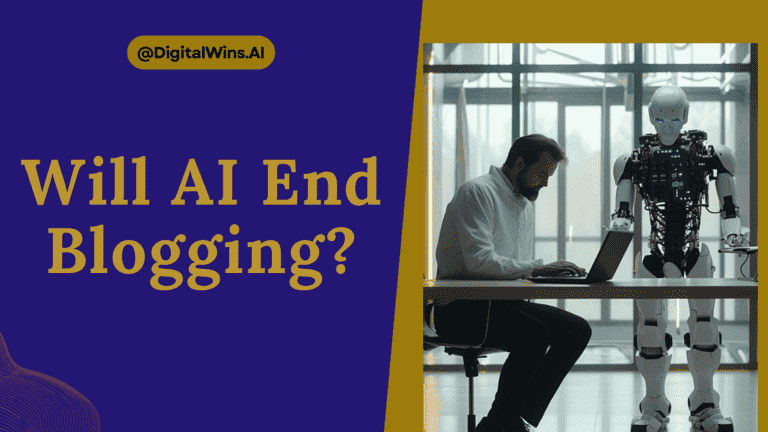
The Misconceptions and Reality of AI’s Impact
How does AI affect writing content and search engine optimization (SEO)?
Some people think it is a huge new thing that can do those jobs by itself. Others see it as just a passing trend that won’t change much.
The truth is in the middle.
AI is a helpful tool that can improve creating content and SEO. But it does not replace the need for human creativity, understanding, and planning.
We’ll delve into how AI has evolved in the digital realm. We’ll also discuss its current role in blogging and SEO and the future it’s shaping. Additionally, we’ll discuss important topics. These include the legal aspects of content created by AI. Search engines are adjusting to these advancements.
For detailed strategies and tools on AI in blogging and SEO, you can refer to our article on how to Use ChatGPT Plugins.

Understanding AI in the Modern Context
Integrating AI into search engines and content platforms isn’t new. However, its recent advancements have made it a central figure in the modern digital landscape. Here’s how AI has evolved and become more accessible:
Brief History of AI in Search Engines
AI has improved search engines significantly over time. At first, it just helped understand what users were looking for and the content of websites. Now, it goes further by grasping the context and purpose of user searches. This makes the search experience more natural and intuitive.
Public Accessibility to Generative AI Platforms
Lately, new AI programs have come out that anyone can use. These AI programs can write text that sounds human-made. Tools like ChatGPT from OpenAI or BERT from Google let people make text easily.
These tools help people who make online content and want their sites to appear high in search engines. The AI programs make content creation faster. The programs can write good descriptions and articles.
They can even answer questions in full sentences. This helps website owners quickly make lots of high-quality content. It allows them to focus more on other parts of their business. The AI programs are still improving. But they already help many content creators and small business owners. As the programs improve at sounding human, they will become more useful. More people will be able to make great online content faster than ever.
Distinguishing Between AI Hype and Practical Implications
While AI’s potential is vast, it’s crucial to separate the hype from its practical applications. AI can streamline workflows. It can also offer new opportunities for creativity and optimization. However, it is key to understand the limitations of AI to integrate it into your digital strategy.

Generative AI and Content Creation
AI’s role in content creation is growing. However, it has limitations. Here’s a look at what AI can and can’t do, and why human input remains irreplaceable:
Limitations of AI in Content Generation
- Lack of Original Insights: AI can provide information and mimic writing styles. But it can’t create genuinely original insights or innovative ideas.
- Struggles with Context and Nuance: AI may not fully grasp the subtleties of human emotion or the context surrounding certain topics. This can lead to content that feels flat or off-mark.
The Irreplaceable Value of Human Experience
People are very creative. We can feel many emotions. We connect in meaningful ways. Computers struggle to do those human things. When people make something new, we add things about culture and emotions.
This makes others very interested and feel connected. People have a special talent for creative, emotional, and social things. Computers lack this talent.
Content Types Where AI Struggles
- Emotionally Charged Content: Pieces that require a deep understanding of human emotions and experiences.
- Highly Niche or Technical Topics: Content that requires in-depth, specialized knowledge or expertise in a certain field.
- Interactive and Dynamic Content: Formats require real-time interaction. They also need adaptation based on audience feedback.
By acknowledging these limitations, content creators can leverage AI where it’s strong. They can fill in the gaps with human creativity and insight.
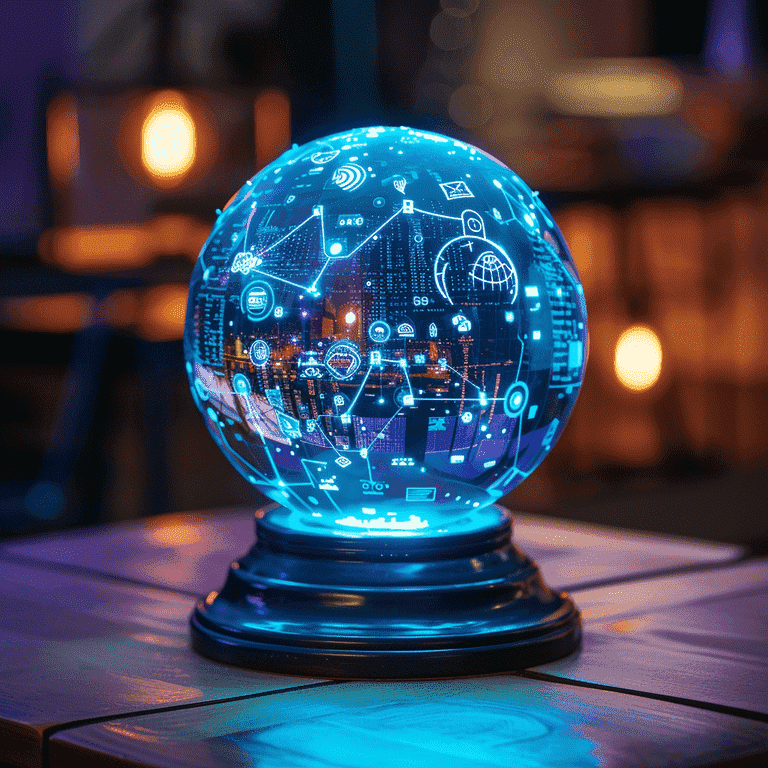
The Future of AI in Search Engine Results
The infiltration of AI-generated content in search engine results is inevitable. However, its impact is not straightforward. Here’s a glimpse of potential scenarios and why keeping AI’s role in check is crucial:
Potential Scenarios if AI Dominates Search Results
- Content Saturation: A flood of AI-generated content could overwhelm users. It may become harder to find genuinely useful and authentic information.
- Quality vs. Quantity: The ease of generating content with AI might lead to a focus on quantity over quality, diluting the value of search results.
Importance of Evolving Learning Models for AI Relevance
For AI to stay relevant and beneficial in search results, it must continuously learn and adapt. Evolving learning models can help AI understand the ever-changing user behavior and preferences. This ensures that the search results remain accurate and valuable.
AI-Generated Content vs. Human-Created Content in Search Rankings
AspectAI-Generated Content vs. Human-Created Content:
– Authenticity: AI content might not feel very real or personal. Human content often has real stories and feelings.
– Reliability: AI content can sometimes be wrong because it might use incorrect or biased information. Human content is usually more trustworthy. It is also more responsible.
– Engagement: AI content might not connect well with readers. Human content can make people feel things and keep them interested.
AI has the potential to reshape search engine results. Maintaining the integrity and usefulness of search engines is key. Striking the right balance is key. It’s between AI-generated and human-created content.
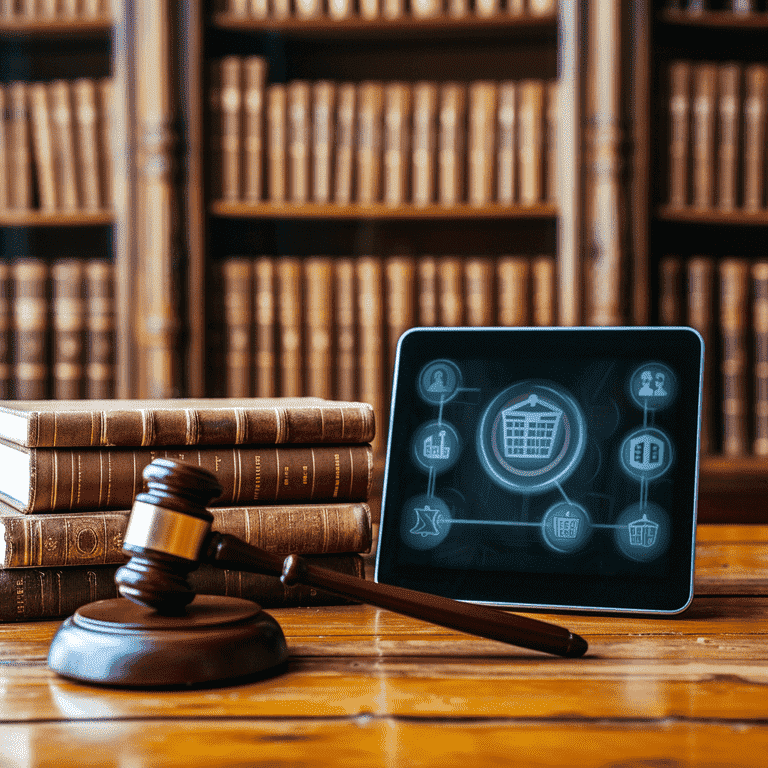
Legal Considerations and Copyright Issues
As AI’s role in content creation grows, so do the legal complexities surrounding its use. Here’s what content creators and users need to be aware of:
AI Scraping and Copyrighted Content
AI learns from stuff that’s already out there, like books and articles. But we have to be careful because this can cause problems with copyright rules. It’s important to make sure that what AI makes doesn’t break these rules, so everyone who makes and uses AI can be safe.
Ongoing Legal Battles and Their Impact
The rules about who owns things made by AI are still being figured out. There are big court cases that might change how we use AI to make stuff, especially for writing and finding things on the internet.
If you use AI to help make your stuff, it’s important to understand these rules. What happens in court can change whether it’s okay to use AI-made things and how people see your work.
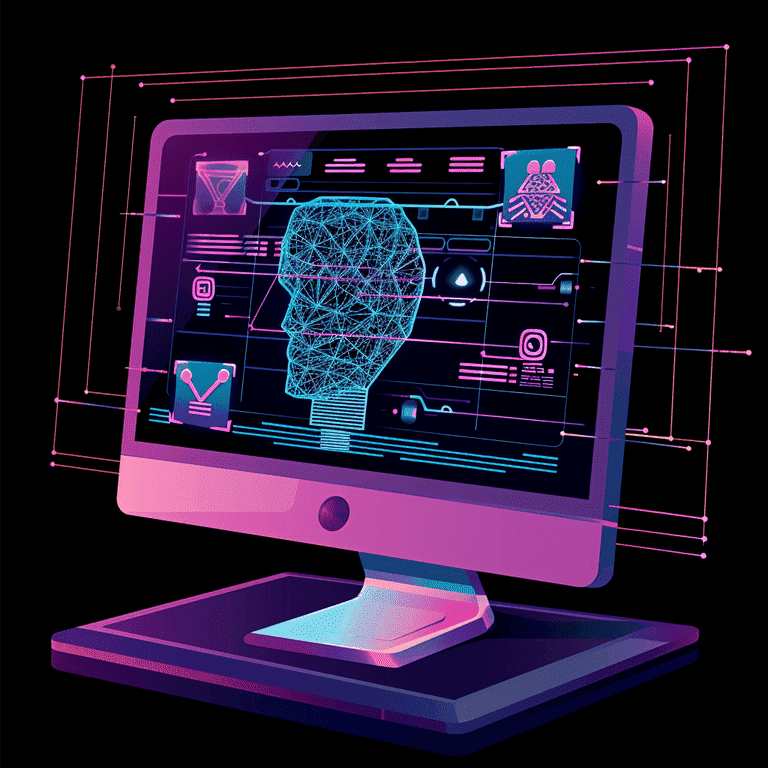
Search Engines and the Integration of AI
AI is becoming more prevalent in content creation. Search engines are adjusting their algorithms cautiously. They are responding to this new reality. Here’s how this integration is unfolding:
The Cautious Approach of Search Engines Towards AI-Generated Content
The rules about who owns things made by AI are still being figured out. There are big court cases that might change how we use AI to make stuff, especially for writing and finding things on the internet.
If you use AI to help make your stuff, it’s important to understand these rules. What happens in court can change whether it’s okay to use AI-made things and how people see your work.
Benefits of Unique, Human-Made Content in the AI Era
We’re seeing more and more content made by AI. People value stuff made by real people. When you search online, the websites with the best content and trustworthiness are often shown first. This is because AI still can’t make content that’s as good as what a person can make.
Increased Competition Among Content Creators
AI tools are accessible, so more content is being produced than ever. This has led to increased competition. Content creators need to focus on quality, originality, and providing real value. This will help them stand out in the crowded digital landscape.
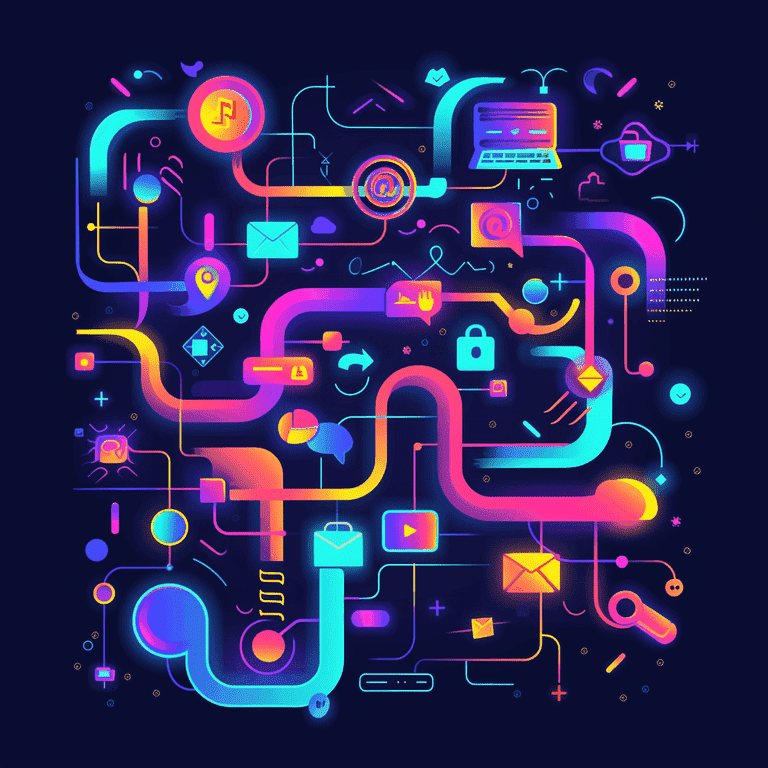
The Dynamic Nature of Digital Marketing
Digital marketing is an ever-evolving field, and AI is just one of the many forces shaping its future. Here’s how content creators can navigate this dynamic landscape:
Emphasizing the Ever-Changing Landscape of Digital Marketing
- Stay Informed: Keep up with the latest trends and tools in AI and digital marketing.
- Adapt Quickly: Be ready to adjust your strategies as new technologies and platforms emerge.
Role of AI as a Tool, Not a Replacement
AI should be viewed as a powerful tool in your arsenal, not a replacement for human creativity and intuition. Use AI to enhance your content and SEO strategies, but don’t rely on it to do the creative work for you.
Strategies for Staying Relevant in the AI Era
- Focus on Quality: Make high-quality, valuable content that resonates with your audience your priority.
- Be Authentic: Infuse your content with personal insights and experiences. This will create a genuine connection with your readers.
- Leverage AI Wisely: Use AI for tasks like data analysis and pattern recognition. Keep the human touch in your content creation and strategy planning.

Breaking Everything Down
We are in a big change with AI, blogging, and SEO. People still need to write stuff because they add something special.
AI can help us do things quicker and in new ways. But it’s best when people and AI work together, especially in digital marketing.
Writers should learn to use AI but also keep their own style and ideas.
The future of writing online and marketing is exciting.
There will be lots of chances for people who can use AI smartly and still be creative.

Frequently Asked Questions
What if I don’t have the budget for paid AI writing tools?
There are some free AI writing tools you can try first before paying for anything. ChatGPT has a free version you can experiment with. Google also offers AI writing features for free. Start there to get familiar with the technology before investing in paid tools.
How can I make sure my AI-generated content is legal and original?
It’s important to check that any AI content you use does not copy other people’s work without permission. Set clear rules so the AI does not plagiarize. Also, review the content carefully yourself. Double-check that it is original before publishing. Give credit if you used other sources.
What happens if my AI tool makes a factual mistake?
The technology is still improving, so AI tools can sometimes state incorrect facts. Always double check important details in any AI-generated content before publishing. Have a human expert review technical topics to catch errors. Make corrections right away if readers point out any mistakes.
How do I explain my use of AI tools to readers?
Be transparent that you used AI assistance. Emphasize the human creativity and editing you added to the final product. Explain why you chose to incorporate AI. For example, did you want to help create content faster or make research easier? Reassure readers that you carefully reviewed the content. Take responsibility for the publishing.
Should I worry about losing my writing skills because I use AI?
Using tools like AI can spark new ideas and creativity rather than replace human skills. Set aside dedicated time for writing without AI to keep your abilities sharp. Think of AI as an assistant that handles repetitive tasks to free you up for more strategic work. Maintain your unique voice and perspective.

Glossary
Artificial Intelligence (AI): Computer programs can do things that normally only humans can do. For example, they can understand language or make decisions.
Generative AI: A type of AI that can create new things on its own, like text, images, audio, and video.
ChatGPT: OpenAI created an AI program. The program can have conversations with people and write about different topics.
BERT: A smart Google program used in many Google products to understand words better.
Learning models: Instructions that AI programs use to get smarter over time by looking at lots of data.
Search engine optimization (SEO): Doing things to get websites higher in search engine results.
Copyright: The legal right creators have to control copies of their creative work.
Algorithms: Step-by-step instructions AI programs follow to solve problems or complete tasks.
Authenticity: When something feels real instead of made up or copied. Human-made things often feel more authentic.

A Special Offer for You
Small business owners, remember that the invaluable SEO tips on this page come directly from our co-founder, Matt LaClear.
Matt has an impressive track record since 2009. He has spearheaded over 13,277 SEO campaigns for diverse clients.
This depth of experience and proven success make him a trusted authority in the SEO world.
We encourage you to take advantage of Matt’s special offer: a free custom SEO strategy call.
This is a unique opportunity to discuss your business’s specific needs and challenges directly with an expert.
The expert has a longstanding history of enhancing online visibility and driving growth.
Don’t miss out on this chance to craft a tailored SEO strategy to propel your business forward.

